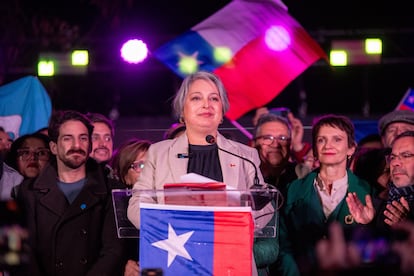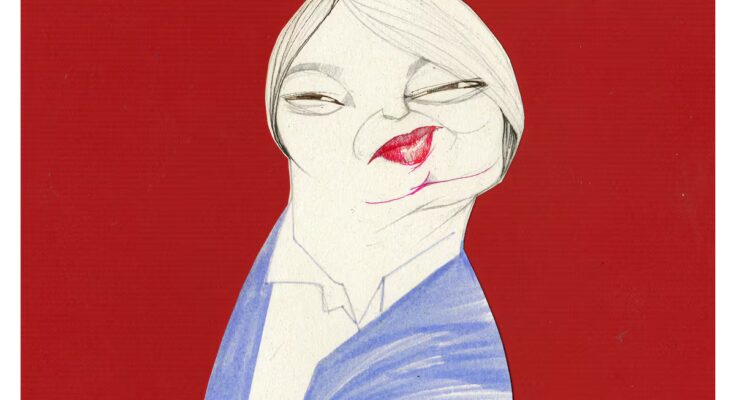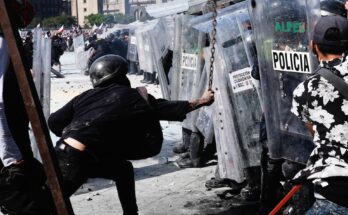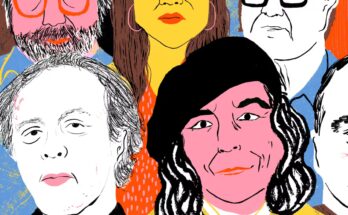When Jeannette Jara Román (Santiago, 51) won the left-wing primary election in June, there were two big surprises. First of all, his vote was high, 60% compared to that of the social democrat Carolina Tohá (although participation was low, 1,400,000 people). Another, which would bring the Communist Party (PC), which boasts an electoral performance of 6%, measured by the number of elected councilors, as political forces in Chile are calibrated, to the forefront of Chilean politics. For this reason, the first question raised after the ruling party’s elections was whether the victory was genuine for Jara or linked to the PC.
Carlos Peña, rector of Diego Portales University and one of Chile’s most influential columnists, was one of the first to provide a glimpse: “It is not the triumph of an ideology, but proof that personality and charisma matter in politics,” he stated categorically in this newspaper. But for the sociologist and political scientist Alfredo Joignant, Jara’s candidacy and campaign “are a great anomaly”: “Chile must be the only country in the world where a communist candidate triumphs in such an important election (the primaries),” he said in June.
For Joignant, a columnist for EL PAÍS, Jara’s case is an anomaly because it occurs “at a time when the ideological winds in the world are blowing in favor of the right (especially nativist, radical or simply right-wing extremist ones)”. The main contender for the standard-bearer of the left bloc, which faces the elections supported by nine parties, is the republican José Antonio Kast. She is first in the polls and the most likely thing, according to most polls, is that she will go to the second round with the ultras, who would win the run-off.
With Jara it is the first time, since the return to democracy in 1990, that the Chilean PC, which continues to define itself as Marxist and Leninist and has not eliminated the dictatorship of the proletariat from its doctrine, manages to have a competitive presidential candidacy. Her rapid rise in politics has also made it clear that the center-left and the left have failed to renew their leadership since the days of the socialist Michelle Bachelet, who arrived twice in La Moneda (2006-2010, 2014-2018). Not even the Frente Amplio, the formation of president Gabriel Boric: in the primaries, the deputy Gonzalo Winter, candidate for re-election to Parliament, reached just 9%.
A popular origin
The public administrator, lawyer and master of public management, made herself known when she was Boric’s Minister of Labor, between March 2022 and April 2024. Her personality and charisma attracted attention, and because she was a dialogue and negotiator with the opposition and the business world when she promoted measures in Congress that were only good news (while other ministries were grappling with the security crisis): the law that reduces the working day to 40 hours per week; the historic increase in the minimum wage and pension reform. Even if the left failed to put an end to the administration of pension funds (AFP), as the PC above all wanted, Jara was pragmatic in giving in on this point to continue the project, considered the most important of the Boric government.
The candidate comes from a working-class background, which distinguishes her from the other seven candidates: she experienced periods of poverty with her family. She is the daughter of a mechanic and a housewife. He was born in El Cortijo, a town in Conchalí, a municipality north of Santiago and studied in a school, a high school and a public university. Since he began his career at La Moneda, he has highlighted that history as an added value: “I don’t come from the elite, but from a Chile that gets up early to work.” He also underlined this effort by closing his campaign this Tuesday in Plaza de Maipú: “I would never have imagined running for the Presidency of the Republic. Not because I thought I couldn’t do it, but because it is unusual for someone who comes from El Cortijo to open the doors of the Government Palace.”
Jara reflects the life of many Chileans. “I want things to change. She’s from the city, she’s simple, she’s a normal woman,” says Orlando Contreras, a 66-year-old retiree who supports her. “I do it thinking of my nieces,” he adds. The candidate usually talks to those who get up at 6 every day to take the bus to work and reiterates that she is interested in Chileans “making it to the end of the month”. Furthermore, he often uses simple and colloquial language, albeit with irony. In the last presidential debate he said in front of his competitors: “There are some who have fewer streets than slippers”, referring to the ignorance of the people.
These characteristics, and above all their origin, were a key element in their campaign, but they are not enough. In the October CEP poll, Jara ranked above Kast in terms of who cares most about people’s problems and also surpassed him in managing health care and education. And although in his program he gives priority to security, growth and immigration control, in the same poll the Republican surpasses him in the attributes of who will have more leadership and better manage public order; growth and employment, crime and drug trafficking.
The communist factor
The candidate has been a member of the PC since she was 14 years old. And despite being a convocation leader, her affiliation and her complex relationship with the leadership of the party chaired by Lautaro Carmona were a backpack that dragged her throughout the campaign. Although he showed himself to be more moderate, several politicians who were part of the former Concertación, the center-left coalition that governed Chile between 1990 and 2010, including the former Christian Democrat president Eduardo Frei Ruiz-Tagle (1994-2000), were unable to support him: Chile is a country that looks with fear at failed experiences, and above all hovers over the ghost of Venezuela. However, it is supported by the moderate left democratic socialism represented by Tohá.
During the Pinochet dictatorship (1973-1990), the PC was persecuted and hundreds of its militants were murdered and disappeared. In the 1980s, a group of the party, the Manuel Rodríguez Patriotic Front (FMPR), took up arms – in 1986 it attacked Pinochet – and committed crimes even after the return to democracy. This then caused the separation from the left and center-left, which fought against the regime with democratic means: the general was defeated in the 1988 plebiscite. There is a deep dispute on the left about whether the end of the regime was achieved only with pencil and paper, as the communists ironically say.
During the Concertación period, the PC was in opposition, but it entered government for the first time during the second Bachelet government, in 2014. This was the case with Jara, who was its undersecretary of Social Security.

Jara, aware of the consequences of his long militancy and the dogmatic positions of his party, has distanced himself from the party several times. And he insisted that his candidacy represents a broad coalition and not one party. “I am not subordinate to the decisions of the PC,” she said. He also tried to highlight other differences, such as underlining that Nicolás Maduro’s is an “authoritarian regime” (for Boric it is a dictatorship). Or, after stating in April that Cuba has “a democratic system different from ours”, which attracted much criticism, in September he stated that “it is clearly not a democracy”.
The great challenge that awaits Jara is, firstly, to overcome at least Boric’s 30% of votes this Sunday. And then, moving on to the second round, beating Kast. To do this he needs to win over the moderate center-left who does not dare to take a step in his favor.
At the end of the campaign, Jara asked his followers to also dialogue with those who think differently: “This is not just another election. It is an election in which there are two very different models of the country”.


